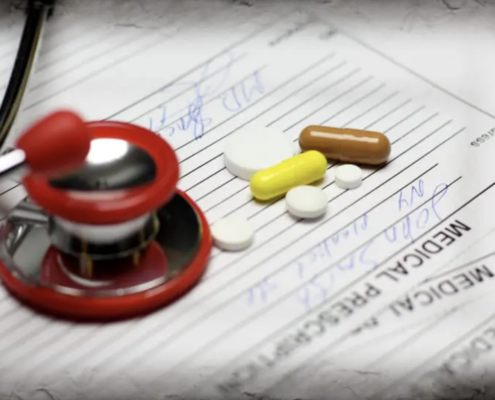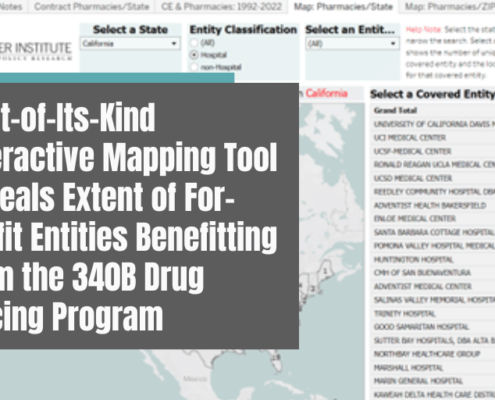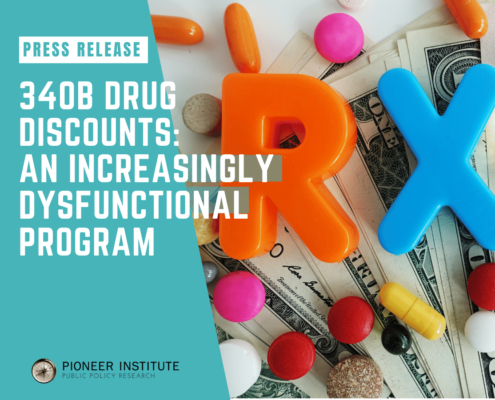Is this PBM tactic blocking healthcare access?
Utilization Management (UM) was originally a strategy designed to improve the safety, quality, and cost-effectiveness of physician prescribing. However, UM has grown exponentially over the last decade, becoming more a tactic for Pharmacy Benefit Managers (PBMs) to manage costs to benefit their bottom line. The growth of UM usage has occurred particularly for treatments that address chronic illnesses, which has created many difficulties as patients with serious conditions are now faced with administrative burdens that cause treatment delays ultimately impacting their health outcomes. UM should be reevaluated with a focus on putting patients first.
One of the most common UM strategies is a prior authorization (PA). This tactic requires that patients obtain insurer approval for medicines before they are dispensed, with the initial goals of preventing unnecessary utilization of biopharmaceuticals and decreasing healthcare spending. However, a study conducted by Robert Popovian and Wayne Winegarden investigating the impact of prior authorizations has demonstrated that such schemes increase overall healthcare spending by at least $1.9 billion, primarily imposing these administrative costs on employers, patients, and providers while benefitting PBMs (3).
The question of how UM techniques benefit PBMs is heightened by examining the role of drug rebates. PA is financially beneficial to PBMs on both sides of the equation, as they charge clients for administrative costs of each one and receive rebates from pharmaceutical manufacturers on the underlying prescription. The big question therefore is whether UM is used to ensure that the patient receives the optimal prescription (as its original alleged intent), or mainly for maximizing profit on the PBM side.
The number of PAs only continues to increase. From 2014 to 2020, a study found that the use of PAs increased on commercial plan formularies in nine of twelve major therapeutic areas (including cancer, autoimmune disorders, chronic conditions, and mental health), and restrictions due to UM have increased in all twelve highlighted therapeutic areas (2).
To make matters worse, the 2021 American Medical Association (AMA) PA Physician Survey reported that 73 percent of the imposed PAs are rarely based on medical-based evidence or clinical guidelines, implying that their use is not in the patient’s best interest (1). One of the most significant inefficiencies of prior authorizations are the considerable time delays once requests are submitted. Due to the frequent need for resubmissions, studies have tallied that physicians spend an average of 20 hours helping patients access these medications. Additionally, physicians suffer extra loss by requiring office staff to attend specifically to this (1).
The AMA survey highlighted that in 91 percent of cases, the use of PAs has led to negative clinical outcomes (1). More specifically, 93 percent of those cases have led to delays of which 82 percent of patients do not even follow through on the treatments. Because of these delays, many treatments are altered or stopped (1). Even when treatments are obtained, the final prescribed treatment is often different from the original request due to the inaccessibility of the original prescription, leading to suboptimal care for patients since they often forgo their providers’ prescribed treatment.
These numbers showcase a brutal reality of care inequities masked under the premise of “managing spending”. UM functions to give PBMs unfair ownership over the decision of who gets access to what care. As a result, in the big picture, these inequitable workflows ultimately determine who will have access to good treatment due to factors outside the patient’s control, leading to poor health outcomes. For this reason, many physicians and patients are calling for a reassessment of UM practices.
Citations
- Ama Prior Authorization (PA) Physician Survey. American Medical Association, 2021,
https://www.ama-assn.org/system/files/prior-authorization-survey.pdf
2. Meyer Rebecca Yip Principal Yonatan Mengesha Associate , Tiernan, et al.“Utilization Management Trends in the Commercial Market, 2014–2020.” Avalere Health, 30 Nov. 2021, https://avalere.com/insights/utilization-management-trends-in-the-commercial-market-2014-2020.
3. Popovian R, Winegarden W (2021) An Estimate of the Net Benefits from Prior Authorization Policies in the U.S. Health Sci J. 15 No. 4: 833.
Related Posts:













